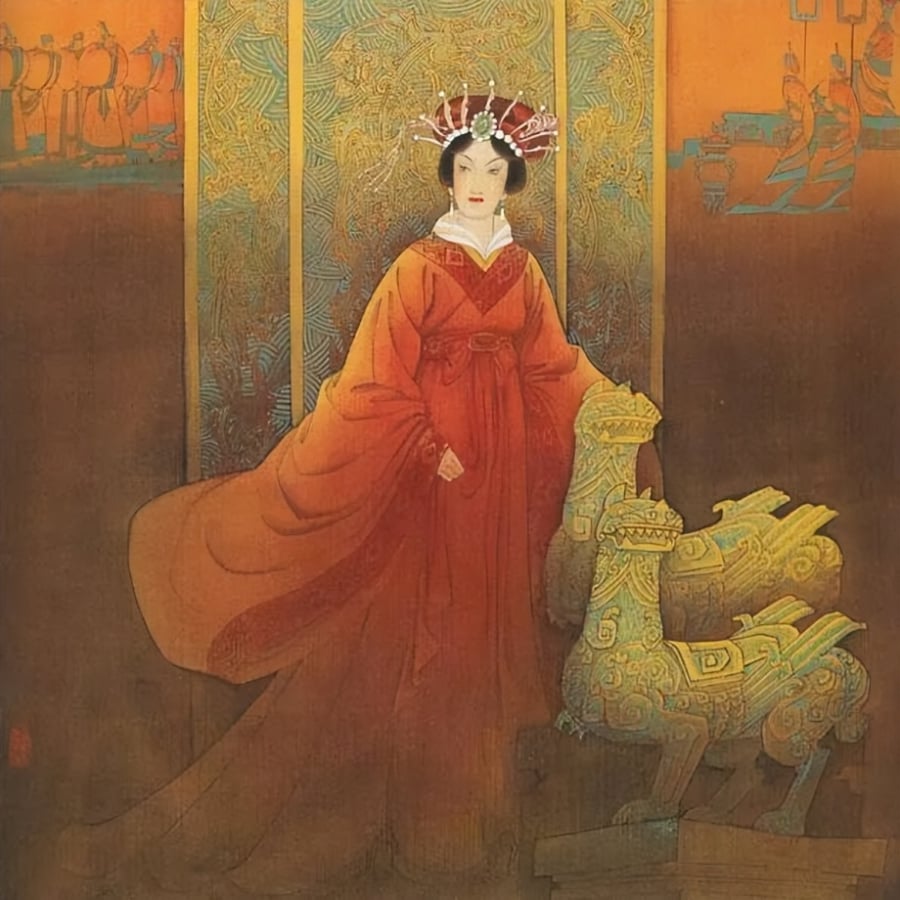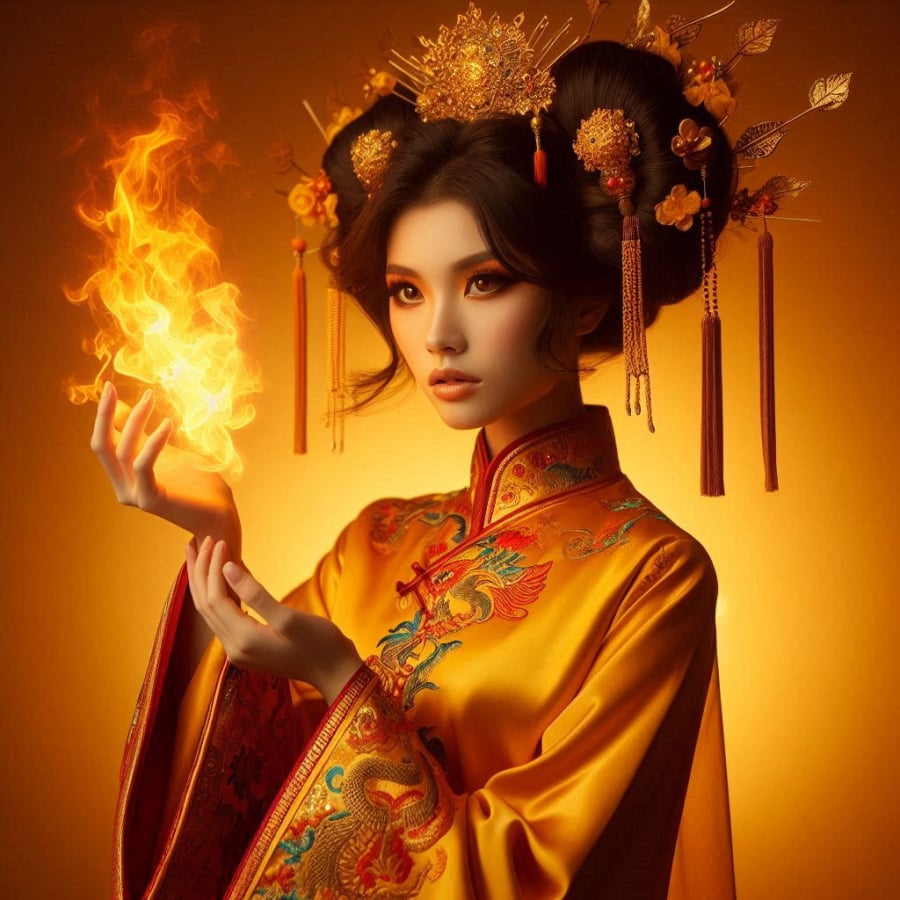After the fall of the Qin Dynasty, Liu Bang, known as Emperor Gaozu of Han, rose to leadership and founded the Han Dynasty. During the country’s transition, he received strong support from his wife, Empress Lü, the first woman in Chinese history to assume the position of empress.
Empress Lü, born Lü Zhi in 241 BC, became the first woman to hold supreme power, rivaling emperors, since Qin Shi Huang unified China and established an empire in the Central Plains. Her involvement in politics not only shaped the Han Dynasty but also left a profound mark on Chinese history.
According to the historical record “Shiji,” although Empress Lü’s reign was marked by court intrigues and criticism, she refrained from disrupting the lives of the common people. Her actions were deft, and she limited the use of punishments for civilians, ensuring a stable society where people could farm and live peacefully.
Empress Lü demonstrated exceptional leadership with her wise policies. Through her firmness and wisdom, she cultivated good relationships with court officials. Many respected her, but her dictatorial rule also struck fear in some.
Any official whom Empress Lü perceived as a threat to her power risked severe punishment. A notable event during her reign was the assassination of Han Xin, one of the greatest generals and loyal subjects of Emperor Gaozu. To eliminate Han Xin, who had been demoted and placed under house arrest, Empress Lü cunningly used Xiao He to lure him into the palace and subsequently executed him.

Officials Who Threatened Her Power Faced Severe Repercussions
In 195 BC, after the death of Emperor Gaozu, Empress Lü became the empress dowager and quickly began to manipulate court affairs. She did not hesitate to punish Consort Qi, one of Emperor Gaozu’s concubines and the mother of Liu Ruyi, for conspiring to usurp the throne for her son, instead of supporting Empress Lü’s son, Liu Ying.
In 194 BC, Empress Lü committed a cruel act by poisoning Liu Ruyi. This event marked a turning point in the court and led to ruthless retribution against Consort Qi, who had sided with Ruyi.
Upon learning of Ruyi’s death, Empress Lü subjected Consort Qi to a horrific punishment. She ordered the mutilation of Consort Qi’s limbs, blinded her, burned her ears, and forced her to take poison that rendered her mute. As a final act of cruelty, Empress Lü imprisoned Consort Qi in a desolate place, calling it “Ren Zhu,” a name laden with insult and humiliation.
After a few days, she allowed her son, Emperor Hui, to view Consort Qi’s tortured state. When Emperor Hui witnessed the painful and tragic scene, he was shocked and, upon realizing it was Consort Qi, broke down in tears. He immediately expressed his outrage to his mother, stating that such an act was unacceptable. He asserted that, as her son, he could not continue to rule in a dynasty where such extreme revenge took place.
Empress Lü’s cruelty knew no bounds, but she could not have foreseen the particularly tragic end she herself would meet. In 180 BC, a strange event occurred in her life, leaving a profound impression on the people of that time.

Empress Lü’s Cruelty Knew No Bounds, but Her Own End Was Particularly Tragic
According to the “Hanshu Wuxingzhi,” in the eighth year of Empress Lü’s reign, during a sacrificial ceremony in the third month, she was suddenly attacked by a black dog that bit her arm and then disappeared. Many speculated that the dog was the vengeful spirit of Liu Ruyi, whom she had wronged.
Public opinion at the time continuously discussed Empress Lü’s cruelty, from the assassinations of brilliant generals like Han Xin and Peng Yue to her vengeful actions against Zhao Wang and Consort Qi. Her extreme acts of vengeance were seen as displeasing to heaven and damaging to her virtue.
After this event, Empress Lü fell into deep psychological crises, which led to a severe decline in her health. Within just four months, she passed away in pain.
As described in the “Luan Xing,” Empress Lü’s death was recorded with a tragic image: she died in a posture resembling that of a dog. This led many to believe that her soul had been bound by another, signifying punishment for her ruthless deeds.
While there are legends and interpretations of her death, historians cautiously refrain from mentioning specific details, preserving the dignity of the imperial family. This is a testament to the cruelty of power and the consequences it can bring.
The Queen who remained loved by the King: Crowned as Empress while the Emperor still lived.
Throughout history, there have been countless tales of beautiful women who captivated the hearts of kings and emperors. These women possessed not only physical beauty but also intelligence and cunning, using their wits to secure power and ensure the success of their offspring. One such remarkable woman was married to a king, yet her influence extended far beyond her role as a wife. She skillfully navigated the complex world of politics and intrigue and, through her clever tactics, managed to secure the throne for her son, who would later become a renowned emperor. Her abilities to captivate, strategize, and thrive in a male-dominated world set her apart from others. She truly was a force to be reckoned with, earning the adoration and favor of the king, as well as the respect and awe of those around her.













